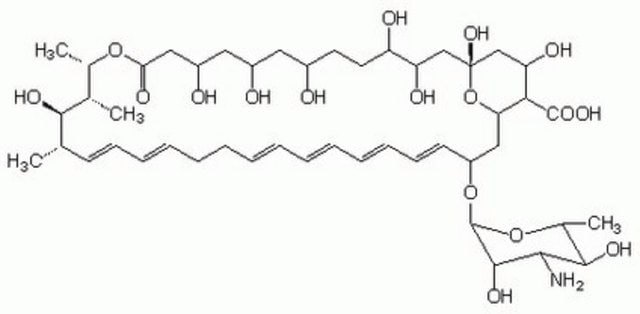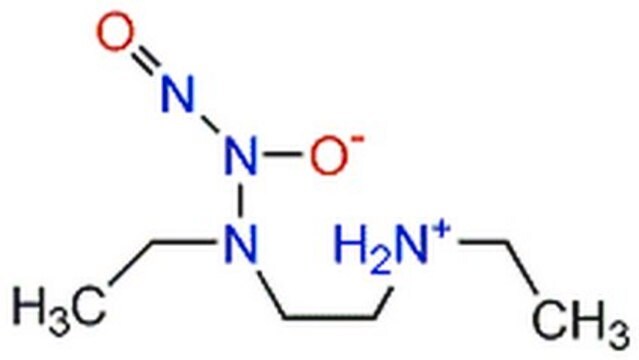おすすめの製品
由来生物
human
リコンビナント
expressed in CHO cells
アッセイ
≥98% (SDS-PAGE)
形状
lyophilized
分子量
monomer 39 kDa by calculation
包装
pkg of 100 μg
不純物
<0.06 EU/μg endotoxin, tested
色
white
UniProtアクセッション番号
輸送温度
wet ice
保管温度
−20°C
遺伝子情報
human ... CTLA4(1493)
詳細
CD152 (CTLA-4 (cytotoxic T-lymphocyte associated protein 4)) and CD28 are structurally homologous molecules that are members of the immunoglobulin (Ig) gene superfamily. Both CD152 and CD28 are composed of a single Ig V-like extracellular domain, a transmembrane domain and an intracellular domain.
CD152 and CD28 are both expressed on the cell surface as homodimers or as monomers. CD152 was originally identified as a gene that was specifically expressed by cytotoxic T lymphocytes. However, CD152 transcripts have since been found in both Th1 and Th2, and CD4+ and CD8+ T cell clones. Whereas, CD28 expression is constitutive on the surfaces of 95% of CD4+ T cells and 50% of CD8+ T cells and is down regulated upon T cell activation, CD152 expression is upregulated rapidly following T cell activation and peaks approximately 24 hours following activation. Although both CD152 and CD28 can bind to the same ligands, CD152 binds to B71 and B72 with 20-100-fold higher affinity than CD28.
CD152 and CD28 are both expressed on the cell surface as homodimers or as monomers. CD152 was originally identified as a gene that was specifically expressed by cytotoxic T lymphocytes. However, CD152 transcripts have since been found in both Th1 and Th2, and CD4+ and CD8+ T cell clones. Whereas, CD28 expression is constitutive on the surfaces of 95% of CD4+ T cells and 50% of CD8+ T cells and is down regulated upon T cell activation, CD152 expression is upregulated rapidly following T cell activation and peaks approximately 24 hours following activation. Although both CD152 and CD28 can bind to the same ligands, CD152 binds to B71 and B72 with 20-100-fold higher affinity than CD28.
生物化学的/生理学的作用
CD152 (CTLA-4) and CD28, together with their ligands B7-1 and B7-2 (cluster of differentiation 80 and 86 respectively), constitute one of the dominant costimulatory pathways that regulate T and B cell responses. CTLA-4 (cytotoxic T-lymphocyte associated protein 4) is known to prevent immune responses, and its deficiency causes fatal lymphoproliferation in mouse models. Overexpression of the gene is observed in rheumatoid arthritis. Mutation in CTLA-4 is associated with insulin-dependent (type 1) diabetes mellitus, Grave′s disease and Hashimoto′s thyroiditis.
物理的形状
Lyophilized from 0.2 μm-filtered solution in PBS.
再構成
Reconstitute at 100 μg/mL in sterile PBS.
その他情報
The extracellular domain of human CD152 [CTLA-4] (aa 37-160) is fused to the N-terminus of the Fc region of a mutant human IgG1.
保管分類コード
10 - Combustible liquids
WGK
WGK 2
引火点(°F)
Not applicable
引火点(℃)
Not applicable
適用法令
試験研究用途を考慮した関連法令を主に挙げております。化学物質以外については、一部の情報のみ提供しています。 製品を安全かつ合法的に使用することは、使用者の義務です。最新情報により修正される場合があります。WEBの反映には時間を要することがあるため、適宜SDSをご参照ください。
Jan Code
SRP8051-100UG:
試験成績書(COA)
製品のロット番号・バッチ番号を入力して、試験成績書(COA) を検索できます。ロット番号・バッチ番号は、製品ラベルに「Lot」または「Batch」に続いて記載されています。
T-cell regulation by CD28 and CTLA-4.
Alegre M L, et al.
Nature Reviews: Immunology, 1(3), 220-220 (2001)
CTLA-4 and autoimmunity: new insights into the dual regulator of tolerance.
Romo-Tena J, et al.
Autoimmunity Reviews, 12(12), 1171-1176 (2013)
Enhanced expression of CTLA-4 (CD152) on CD4+ T cells in HIV infection.
Steiner K, et al.
Clinical and Experimental Immunology, 115(3), 451-451 (1999)
ライフサイエンス、有機合成、材料科学、クロマトグラフィー、分析など、あらゆる分野の研究に経験のあるメンバーがおります。.
製品に関するお問い合わせはこちら(テクニカルサービス)








